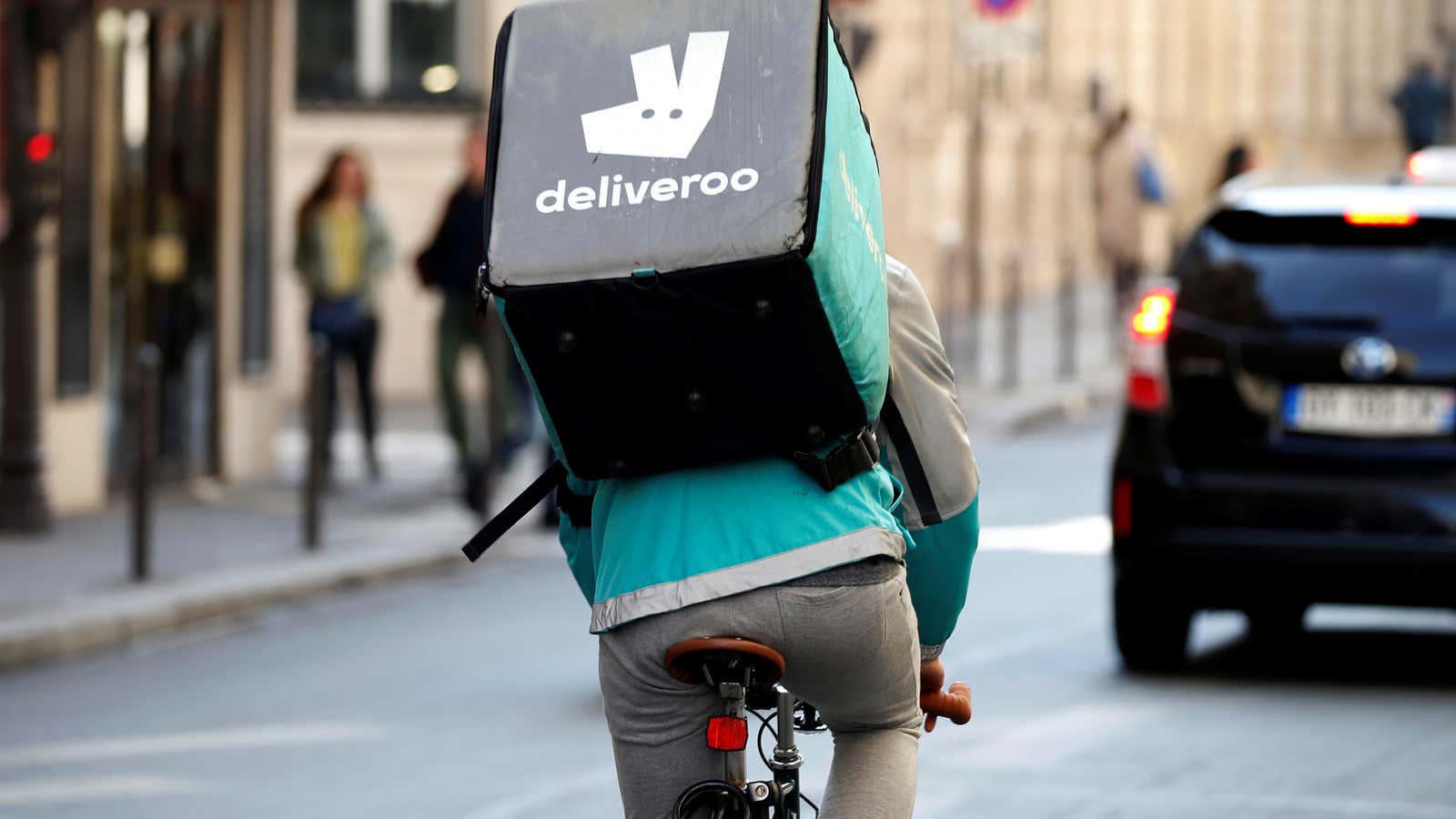Usually when regulators put a deal on ice, it’s a merger that could threaten competition. But when a company gets as big as Amazon, even their investments invite scrutiny.
On July 5, the Competition and Markets Authority, the UK’s competition regulator, ordered Amazon (pdf) to pause any integration with Deliveroo, a London-based food delivery startup in which Amazon led a $575 million (£457 million) investment in May (the size of Amazon’s investment wasn’t disclosed). The order instructs Amazon and Deliveroo to keep their businesses and brands separate. It bars them from making substantive changes to their management teams and internal structures, integrating their technology, sharing trade secrets, or negotiating on behalf of each other.
To be clear, Amazon didn’t buy Deliveroo, which has raised $1.5 billion to date and is valued at $4 billion. It took a minority stake through a financing round that several other investors—including Fidelity and T. Rowe Price—also participated in. (Amazon could certainly afford to buy Deliveroo if it wanted; $4 billion is pocket change for the e-commerce giant, which paid $13.7 billion for Whole Foods in June 2017.)
Amazon hasn’t shared much about its plans for Deliveroo. “We believe this minority investment will enable Deliveroo to expand its services, benefiting consumers through increased choice and creating new jobs as more restaurants gain access to the service,” Tom Parker, an Amazon spokesperson, said in an emailed statement. Amazon shuttered its own food delivery operation for Prime members, Amazon Restaurants, in the UK in December and in the US last month.
Deliveroo said in May it would use the funds to expand internationally and open more delivery-only kitchens, also known as “dark kitchens” because they’re often built in metal boxes without windows. Such kitchens are designed to help restaurants expand their delivery radius without having to open an entirely new storefront, pushing businesses away from traditional brick-and-mortar operations at a time when UK main street stores are already suffering a vacancy crisis.
A spokesperson for Deliveroo said the company has been “working closely with regulators to obtain regulatory approvals.”
